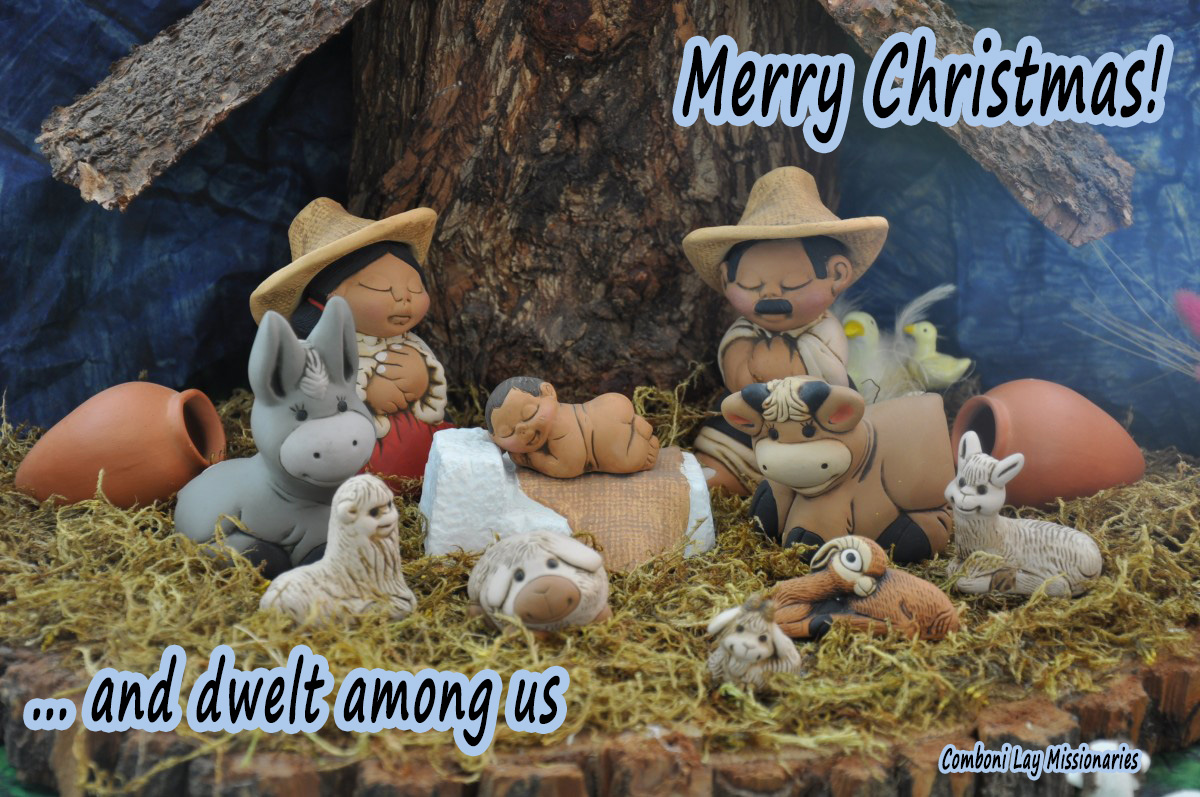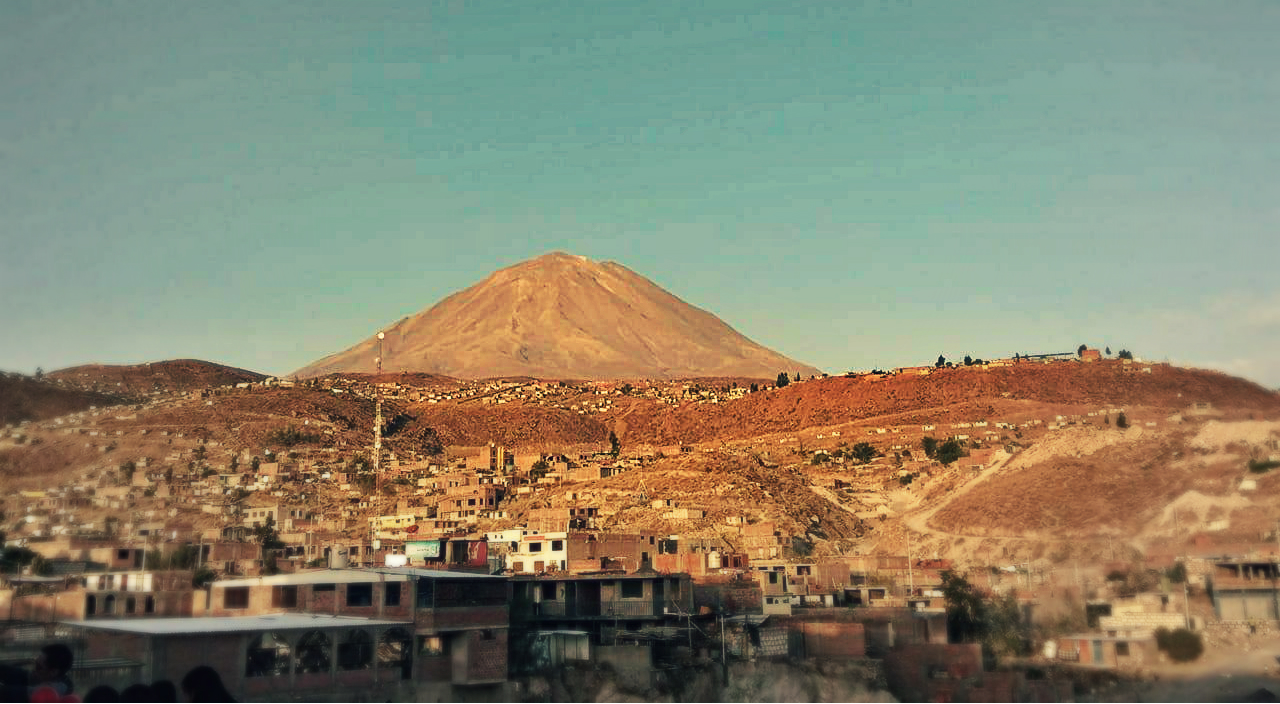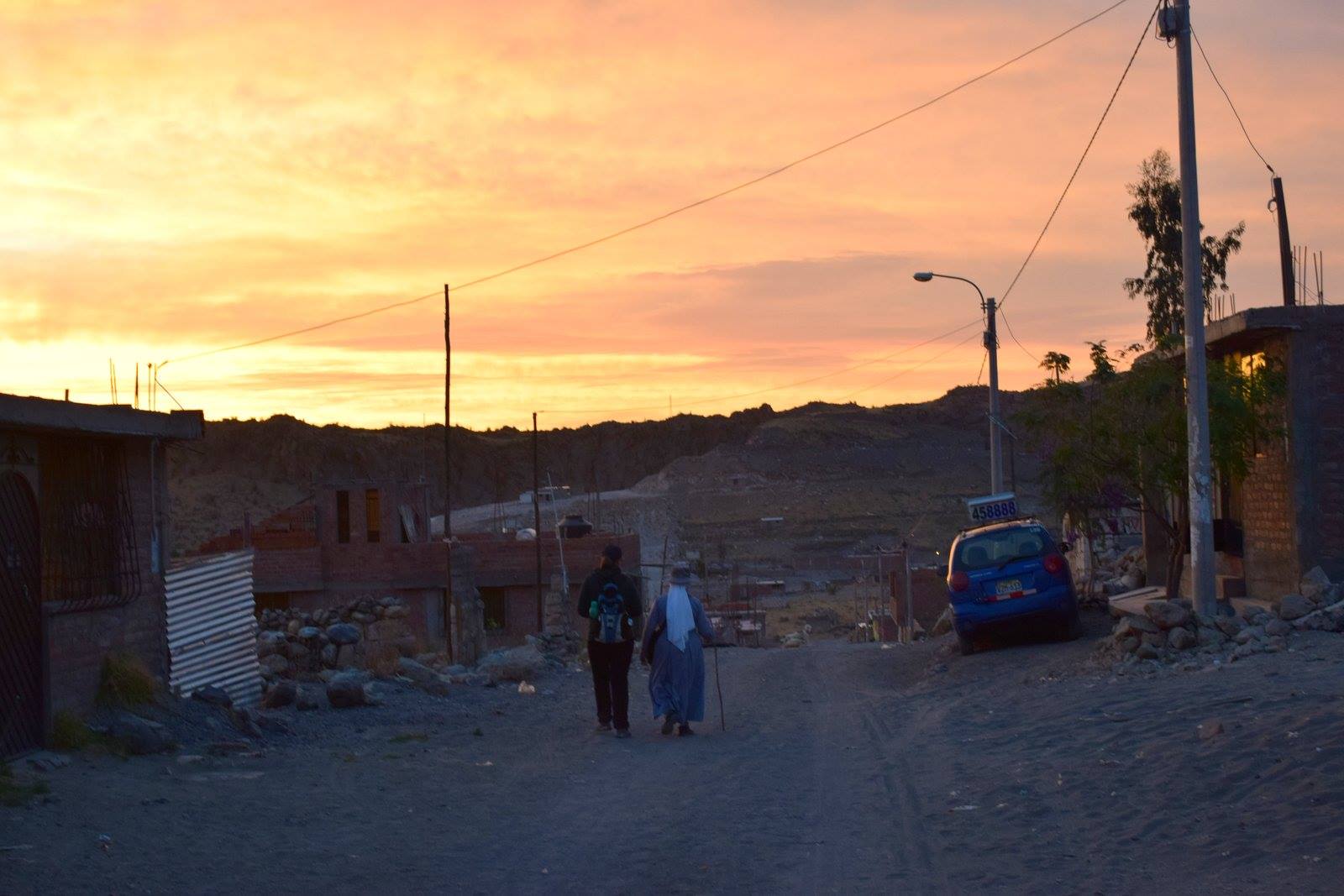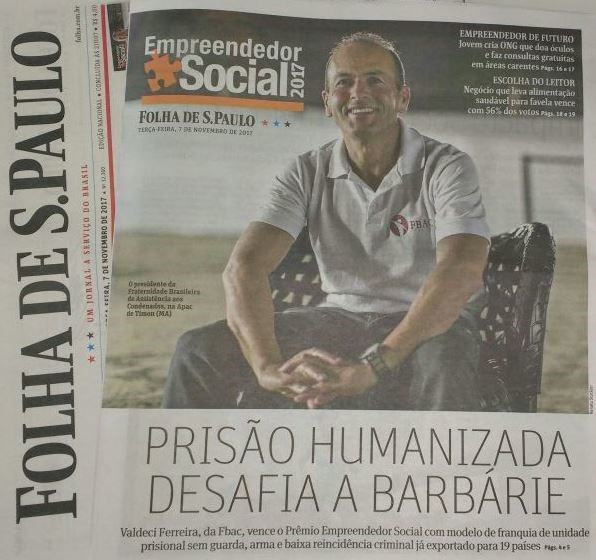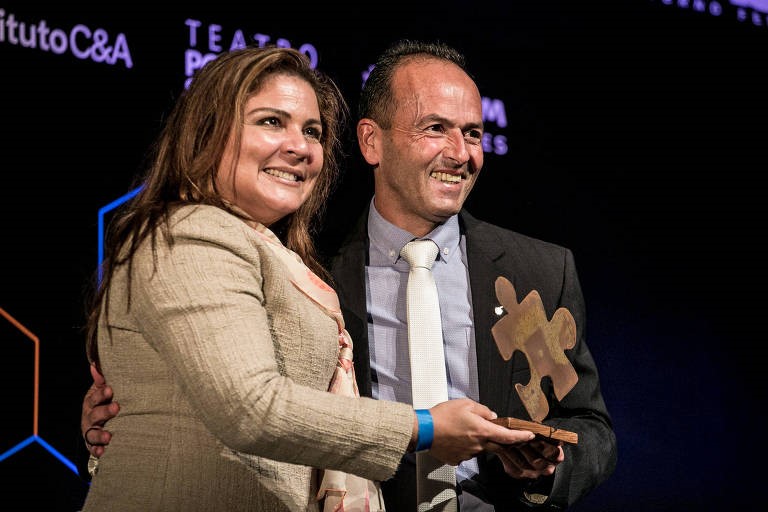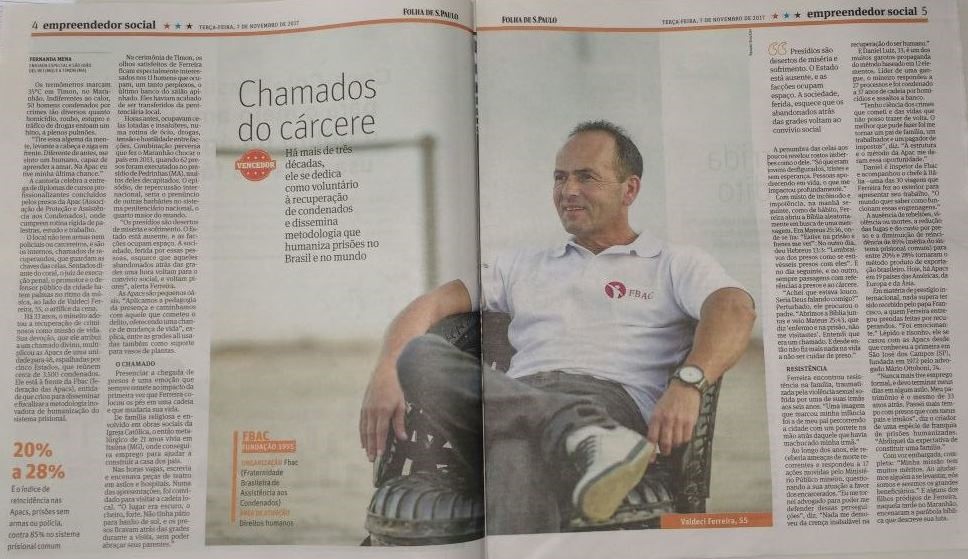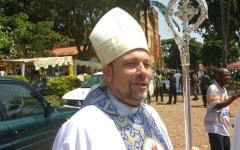 The Comboni Missionary from Burgos, Jesús Ruiz Molina, was ordained on November 12, 2017 auxiliary bishop of Bangassou in the Central African Republic (CAR). The celebration took place in Bngui, because his own place can only be reached by helicopter. In fact, the political authorities and other guests did not want to be taken to Bangassou, due to the state of insecurity prevailing in the region. After passing through Chad and for the CAR’s city of Mongoumba, Jesús Molina has accepted to be assigned to a place which is afflicted by an endless guerrilla in order to work with Bishop Juan José Aguirre Muñoz, another Spanish Comboni Missionary, in trying to find ways to peace and reconciliation and to serve the poor.
The Comboni Missionary from Burgos, Jesús Ruiz Molina, was ordained on November 12, 2017 auxiliary bishop of Bangassou in the Central African Republic (CAR). The celebration took place in Bngui, because his own place can only be reached by helicopter. In fact, the political authorities and other guests did not want to be taken to Bangassou, due to the state of insecurity prevailing in the region. After passing through Chad and for the CAR’s city of Mongoumba, Jesús Molina has accepted to be assigned to a place which is afflicted by an endless guerrilla in order to work with Bishop Juan José Aguirre Muñoz, another Spanish Comboni Missionary, in trying to find ways to peace and reconciliation and to serve the poor.
After 25 years in Africa, they make you a bishop…
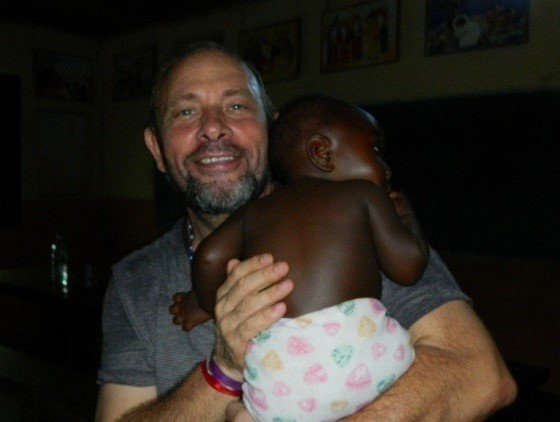
It was a cold shower, practical icy, because I neither feel worthy nor find it humanly attractive. By the end of this year I was planning to return to Spain and work in vocation promotion and in Justice & Peace while, at the same time, be with my aging parents and rejuvenate myself in all fields. Trusting in God I said yes and this has completely changed my life, which is already tied to this people to the end in a sacramental way.
Is Bangassou the most complicated place in which you have been?
I spent 15 years in the savannah of Chad in a difficult environment with famines and wars. I spent my last nine years in the forest with the pygmies and with extremely poor people. Currently, Bangassou is one of the most conflicted areas of Africa. You can only get there by air. The 12 parishes we have there have been looted by the 14 armed groups who are fighting to dominate the country. Violence and massacres are a daily affair. The majority of the population is displaced. The majority of the priests and of the sisters have fled. In the cathedral we haven’t said Mass for four months because we have been housing 2,100 Muslim refugees that the anti-balaka want to kill. No State employee wants to come here. This is why we decided to celebrate my ordination in Bangui. My people of Bangassou will not be able to attend, but on December 8 we will celebrate a Mass of thanksgiving to celebrate the fact that God does not abandon us in our sorrow.
What do you think the mission of a bishop must be in a place like Bangassou and yours in particular?
I have no preconceived plans. I am going in order to stand with people who suffer. For me, to be a bishop is not a promotion, but rather trust in the One I love who is inviting me to follow him on the journey to Jerusalem: “Come, follow me.” I never studied to become bishop, so people will have to teach me. The bishop is the shepherd who, when the wolf comes, does not abandon his flock, but watches over all, both those who are outside and those who are inside, who denounces the death brought by injustice and proclaims salvation which is life in Jesus Christ. Today in Bangassou we need peace, a lot of peace in order to heal the many bodily wounds and, above all, those of the spirit. We need reconciliation and forgiveness. We need to build together a future for this traumatized population. We will keep it up for them making an effort to keep the schools going, to cure the sick, to care for the poorest and most abandoned, standing by the weakest, working for justice, the only way to true peace, and through it all we will continue to proclaim the Good News of Jesus, who came that we may have life and have it in abundance. Today, this life has been snatched from my people.
You have Juanjo Aguirre and Card. Nzapalainga as points of reference…
There is no doubt that we keep Aguirre and Card. Nzapalainga as points of reference who daily give flesh to the Gospel, they give me breath and stimulation, the novice that I am. But there are many other teachers as well who stimulate me, from the sisters working from morning to dusk surrounded by enormous amounts of violence, to the priests who risk their lives to save a few. The Christians who live by mercy on a daily basis… The people of God is the greatest source of stimulation for a shepherd, they teach us to be shepherds.
You have always been with the poor. Is this your preferential option?

This preferential option for the last, those who do not count, the discarded as the Pope says, comes from Jesus of Nazareth. Jesus showed us and impartial God who leans freely and lovingly towards those whom the world despises. Being the unsatisfied searcher that I am, curiously I discovered that it is in those who are despised by the world that we find the true face of God. The poor, the humble, the hungry, those who cry, the persecuted, those who cry for justice… they are the Bible in the flesh. I was given this great treasure of being able to serve them a little, and I am happy to be the one who greatly benefits from it, because it is the poor who give me God.
As a Comboni Missionary your ties to Africa are very strong. Is it still the forgotten continent in our time?
In the economic organism of the world Africa does not count. The terrible attack in Barcelona was world news, while the hundreds of people murdered in my diocese on that same day did not deserve one line in the press. An underhanded neocolonialism is taking over Africa today. The world’s powers unscrupulously fight over its riches causing wars, destroying cultures, exterminating entire populations… But Africa is life with capital L. The origin of humankind is in Africa and I dare to say that its future passes through Africa.
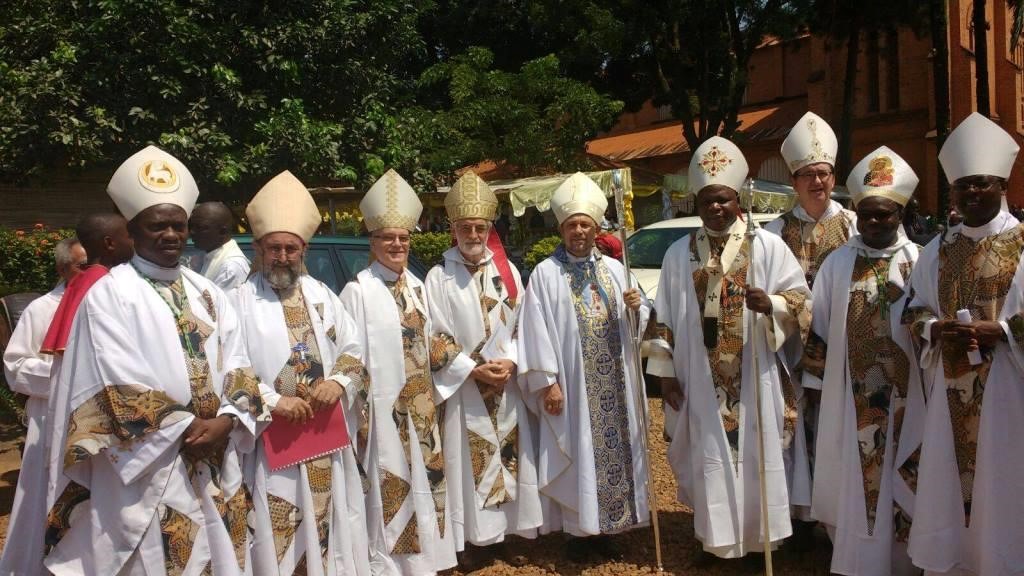 Bishops of the Central African Republic.
Bishops of the Central African Republic.
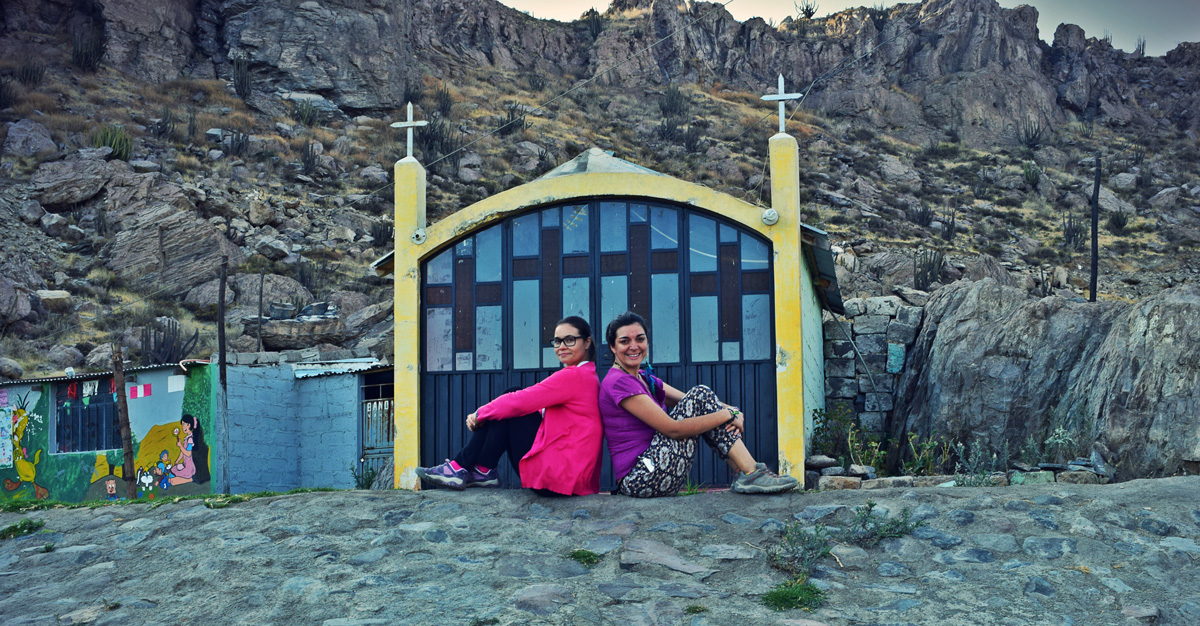 True joy is born out of love. Only when we dare to live by love we allow God to be born in us turning our heart into his crib. Only when we believe in the mystery of Jesus we are truly happy. Happiness comes out of a heart that, a little at the time, has gone and has been falling in love with God. To acknowledge that God exists is to be certain that we never walk alone and the joy to know that he walks with us and daily transforms our lives. The journey is not as simple as the words we use, it is demanding. It demands an effort on our part, that we start walking, that we move out of ourselves and, like Mary and Joseph, we walk to the Galilee of our hearts looking for the best place to be reborn with Jesus. Because Jesus is alive and comes to us.
True joy is born out of love. Only when we dare to live by love we allow God to be born in us turning our heart into his crib. Only when we believe in the mystery of Jesus we are truly happy. Happiness comes out of a heart that, a little at the time, has gone and has been falling in love with God. To acknowledge that God exists is to be certain that we never walk alone and the joy to know that he walks with us and daily transforms our lives. The journey is not as simple as the words we use, it is demanding. It demands an effort on our part, that we start walking, that we move out of ourselves and, like Mary and Joseph, we walk to the Galilee of our hearts looking for the best place to be reborn with Jesus. Because Jesus is alive and comes to us.



